FOSS Week in Review
The Microsoft saga continues…
Ten or twelve years ago somebody noticed that no one except IBM ever entered into a partnership with Microsoft and survived. Since then a few got lucky, but not many, and one of them wasn’t Nokia. For the life of us, we can’t figure what ever convinced the Finnish folk that hiring Stephen Elop, then head of Redmond’s business software division, as CEO was a good idea. We guess they never really grokked the whole understanding-history-or-being-doomed-to-repeat-it concept.
When Mr. Elop decided to scrap all plans for all mobile operating systems other than Windows Phone at Nokia, red flags should’ve gone up. We figure the only reason they didn’t is that the Finns spent most of the 20th century nurturing an aversion to red flags. In this case, the aversion cost them dearly. They bet the farm on an OS that no one else wanted and now the used-to-be-leader in the cell phone business is just another division of Microsoft.
We can’t help but wonder if this represents a new approach to acquisitions for the Windows maker? In the past, Microsoft’s history has been to buy successful companies, or start-ups with loads of potential, then ignore them and refuse to feed them until they die of starvation. This time they bought an organization they’d already put on the ropes. At the very least, they should get a quicker write off on this one.
Microsoft is in trouble; maybe more trouble than anyone realizes. Even if PC sales weren’t shrinking, the company might be working to regain lost footing. Even before the iPhone and iPad changed the computing landscape, there was evidence that Redmond was losing the grip it held on the big OEMs and that it would only be a matter of time before they began to explore avenues other than “we recommend Windows.”
But PC sales are shrinking and Microsoft has done very little to solidify their hold on that market before traipsing off to get a toehold in smartphones and tablets, which seem to be the new consumer computers. Instead, they’ve done just the opposite. They knew, or should have known, a year or two before it was released that Windows 8 and the interface formally known as Metro wouldn’t fly with their core customers. They released it anyway, with great fanfare, while announcing to their OEM partners that they were going to compete with them with their own Microsoft branded hardware.
A few years back, when it started becoming obvious that Redmond was losing its grip on the market, it appeared that the company would survive, just not as the all powerful monopoly force we’d known. Now it looks more and more like Microsoft might not survive. A world without Microsoft, or a world in which Microsoft is merely a division of, say, Oracle might very well be where things are headed.
Indeed, some of Microsoft’s investors seem to be getting this message, which we learned Tuesday when Reuters reported that some major stockholders are now demanding the company to consider some “turnaround experts” to head the Redmond empire after Mr. Ballmer exits:
“At least three of the top 20 investors in Microsoft Corp want a turnaround expert to succeed Steve Ballmer as chief executive and have urged the technology giant’s board to consider Ford Motor Co CEO Alan Mulally and Computer Sciences Corp CEO Mike Lawrie for the job, several sources familiar with the matter said.”
On the surface it may seem that Microsoft can’t help but turn itself around. They still rake in tons of money from Windows and Office, but both of these flagship products are becoming increasingly less relevant, especially now that casual computer users are abandoning the laptop and desktop tower for handheld devices. They also sit on a pile of money, which might make some think they’ll easily be able to buy their way back to success.
Ask Scott McNealy; that’s not necessarily so.
After the dot-com bubble burst in 2000, Mr. McNealy’s Sun Microsystems was also sitting on a mountain of money–enough to keep the company afloat through a decade of losses. Even with some of the best servers on the market and a version of Unix many still consider to be best-of-breed, the company eventually failed.
Which brings us back to studying history in order to not repeat it.
A new Surface due soon
That being said, Microsoft seems to be determined to stay the course laid out by Ballmer for the time being. On Monday, Mary Jo Foley at ZDNet shared what she’d heard about the new Surface RT, which should be on the shelves in time for Santa:
The Surface 2 runs on ARM, just like the Surface RT, and thus runs the Windows RT operating system. (It will be the Windows 8.1 RT variant, sources have said.)
Otherwise, the 10.6-inch Surface 2 will look almost identical to the current 10.6-inch Surface RT. It will use the same VaporMg case and work with the current Surface Touch and Type keyboard/covers, as well as some of the coming, new Touch and Type ones. (Surface 2 isn’t expected to work with the rumored Power Cover, however.)
Sources say battery life on the Surface 2 will come in around eight hours — about the same as current Tegra 3-based Surface RT device. The Surface 2 is rumored to have a USB 3.0 port, support for 802.11 Wi-fi (no built-in LTE) and Bluetooth. It will ship with versions of Word, Excel, PowerPoint, OneNote and Outlook that have been compiled to work on an ARM-based device.
Ms. Foley had no information on the pricing of the new Surface RT. The current version starts at $349 or $399 for a bundle with keyboard and cover.
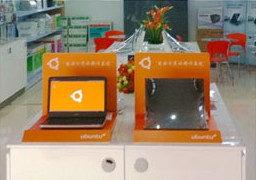
While Microsoft works to gain traction in mobile, it also seems to be losing its iron clad grip over traditional computing models. Here in the U.S., Chromebooks are taking an increasingly larger piece of the PC pie. In China, now the world’s largest computer market, GNU/Linux is getting traction with Ubuntu. We’ve learned from Softpedia that Dell branded Ubuntu laptops are now available in over 1,000 stores throughout that Asian nation.
According to Cannonical’s Maria Bonnefon:
“Dell and Canonical will jointly extend across Tier 1 thru’ Tier 6 Chinese cities with a range of hardware pre-loaded with the Chinese language version of Ubuntu 12.04 LTS. The original stores have proven so successful that the companies have agreed to expand to beyond 1,000 outlets.”
This can only be good news for GNU/Linux worldwide. If Dell and Ubuntu are able to get traction with Linux in the People’s Republic, it’ll only be a matter of time before that catches on elsewhere, maybe even here in the good ol’ US of A.
WikiLeaks server fetches $33,000
Finally, yesterday we learned from Reuters that a retired server used to serve-up webpages for WikiLeaks has been sold by Swedish Internet firm Bahnhof, which once hosted WikiLeaks, to an unnamed collector for a whopping $33,000. The server has been bought sans data.
That does it for this week. Until our next Week in Review, may the FOSS be with you…







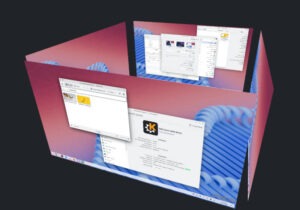


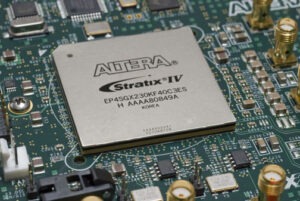
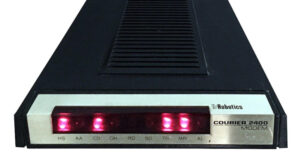
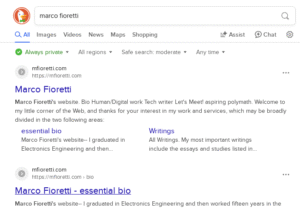
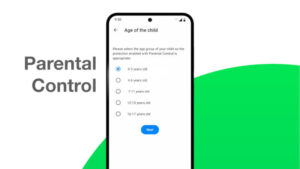
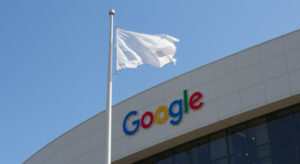


If I had not already hated Microsoft enough … I had a Nokia N800. I LOVED Maemo.
You say “For the life of us, we can’t figure what ever convinced the Finnish folk that hiring Stephen Elop, then head of Redmond’s business software division, as CEO was a good idea. . . . When Mr. Elop decided to scrap all plans for all mobile operating systems other than Windows Phone at Nokia, red flags should’ve gone up.”
I say that ‘the fix was in’ from the get-go, before Nokia even announced that it was hiring Elop. Knowing that Nokia was in dire need of cash in 2010 to continue its marketing and R&D efforts in the face of the market switch to iPhone and Android, Microsoft told Nokia “you hire Elop as CEO; he waits a couple of months to make it look as though he’s studying the situation, and then he announces that Nokia is dropping Symbian and switching to Windows Phone; we give you a lump sum $X in marketing support at that point and then $Y for every Windows Phone you sell; but if you haven’t sold #x Windows Phones after 30 months [or aren’t selling Windows Phones at a rate of #y per month after 30 months, or whatever], then Microsoft has the option to buy Nokia for X% of its market cap [or Y times its earnings, or whatever], because we are damn well not going to give you the marketing support and not have you selling a lot of Windows Phones for us.” According to Computerworld, 13 Feb 2011), Elop justified the switch from Symbian to Windows Phone by saying that Microsoft was going to invest billions, not millions, in marketing and other support for Nokia’s Windows Phones (http://www.computerworld.com/s/article/9209259/Microsoft_to_pay_out_billions_as_part_of_Nokia_deal). In my view, (i) Microsoft doesn’t lay out billions to buy market share without having a Plan B from the day it opens its wallet, and (ii) Nokia absolutely must have known what was coming when it hired Elop in 2010 and when it adopted Windows Phone months later in 2011.
I would not guess about how or under what conditions Stephen Elop was hired by Nokia. However, it came as no surprise, indeed it was quite expected when Elop announced that Nokia would manufacture Windows 8 “only” mobile phones.
I speculated at the time of the announcement – in Technology media – that no matter the fate of the Nokia phones or the company, even if Nokia was going bust, Stephen probably has already received millions of dollars$$ in compensation from Microsoft, thus Nokia’s financial outcome was of no significance to his personal economic future.
It will be interesting to hear publicly about the disposition of the Nokia board of directors in light of this “treasonous act” of Elop, as described by several technology professional acquaintances with very, very large USA and European technology firms.
Ah, I feel your pain. N900 owner here and loving it.
Let’s hope Jolla (or maybe Newkia?) come to the rescue with a good Linux based phone.
Ouch, of course my previous comment was directed @B.Ross Ashley.
Regarding Newkia, they’ll focus on Android apparently:
http://www.zdnet.com/nokia-is-dead-newkia-rises-from-its-ashes-7000020271/
So, my hope is on Jolla 🙂